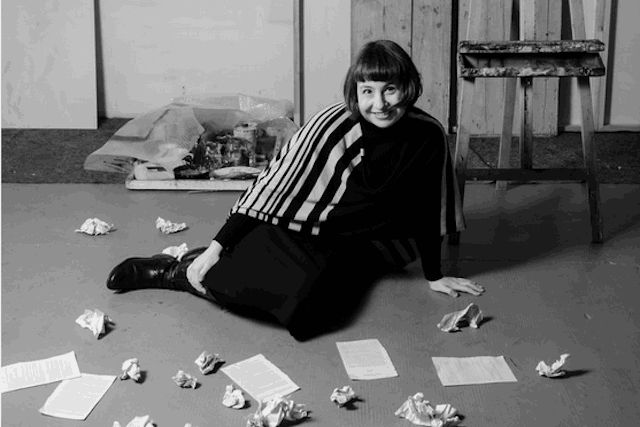Jess Bauldry: You have had an incredibly varied career so far: a PhD, writing tours for various museums in the UK, training as a teacher in 2009 and launching Black Fountain Press, an English language publishing house. It almost seems like you were preparing for this role. What role has the English language played in your career?
Nathalie Jacoby: It’s no secret that English language and literature are close to my heart. I studied German and English literature and fell in love with London in my early twenties. Many of the positive things that have happened to me have happened because of languages, and the English language in particular has, over the years, opened many exciting and lovely doors.
Some people suggest English is the country's fourth language. How do you see the role of English in literature in Luxembourg?
English has definitely become more prevalent within Luxembourg’s literary landscape. And that doesn’t go unnoticed. Pierre Joris won this year’s Batty Weber Prize, Luxembourg’s national literature award, and, over the last six years, the Concours littéraire national has, all categories confounded, awarded a third of its prizes to English-language texts. That is significant and it shows both the importance and the appreciation of English-language literature in Luxembourg.
There are several reasons for this: Young people have more contact with the English language than other generations had, and there is a vibrant expat literary scene. At the same time, it is nothing new. Luxembourg’s literature has always been a literature in several languages--Pierre Joris argues beautifully that literature itself is a foreign language – and in a volatile linguistic environment--and Luxembourg is such an environment, because it practically demands of its writers to make decisions on language--it may be easier for a “new” language to establish itself as a language of literary choice. It’s exciting, this heady mix of languages gives Luxembourgish literature its vibrancy and identity.
Are there plans to further develop its place in Luxembourg through the CNL?
In 2017 the CNL hosted an evening of English-language literature, and just before the lockdown I had the opportunity to speak at the Luxembourg Embassy in London about the role of English in Luxembourg literature and to introduce Luxembourg writers who write in English. I’d like to continue in this vein and give our multi-faceted literary heritage a platform. Also: The CNL is, above all, an archive--and we will continue to enrich our collection with traces of literary productions in all languages.
You were already working part-time as a researcher at the CNL while teaching German and English at the Lycée Ermesinde. What does this new role mean for your teaching career and Black Fountain Press?
I’ve had to leave both Lycée Ermesinde and Black Fountain Press to take up this new position. I’m sad about that--I loved teaching and particularly the kind of pedagogical probing that Lycée Ermesinde encourages and I am very proud of what Black Fountain Press has achieved. But both will thrive without me, and I’ll be able to profit from these experiences in my new role.
The CNL is a public literary research institute that was established in 1994 and is located at the Maison Servais and the Maison Becker-Eiffes in Mersch. It specialises in the documentation and analysis of Luxembourgish literature and hosts a variety of literary and cultural events.
